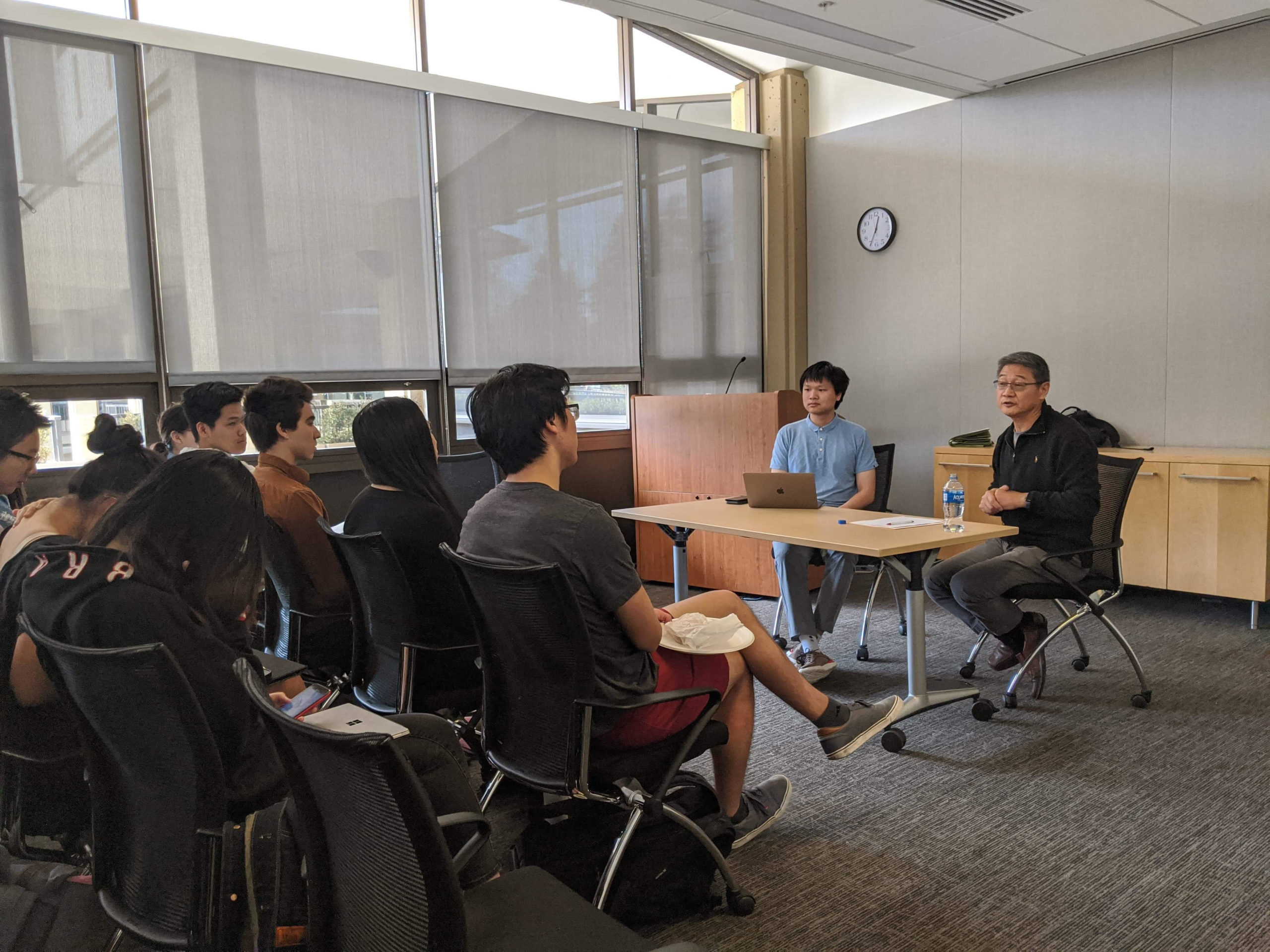Sociology professor Xueguang Zhou discussed the Chinese government’s response to the coronavirus outbreak on Friday. Zhou, also a senior fellow at the Freeman Spogli Institute, discussed the transmission of information in the early stages of the outbreak and the effectiveness of the centralized response, calling for more robust civil society participation in complex crises in China.
The event, hosted by the Forum for American/Chinese Exchange at Stanford University (FACES), attracted more than 50 Stanford students and affiliates.
Zhou, whose research focuses on the organizational structure of Chinese government institutions, discussed the structural causes of Chinese authorities’ responses in different stages of the outbreak.
He first hypothesized why Chinese authorities did not give earlier public warnings in the disease’s spread, despite doctors’ knowledge of the dangerous and contagious nature of the virus. The government’s opaque system of transferring information makes it difficult to identify the cause of the delayed response, according to Zhou. But it’s likely that “the channel of information got stuck somewhere,” he said, so the officials could not make major decisions that entail significant consequences when they did not have sufficient evidence at hand.
The Chinese government later implemented policies including large-scale quarantines and lockdowns in certain areas. Whereas Zhou described this set of procedures as something only China can do, he expressed skepticism regarding whether “it is a good case.”
“Although the Chinese government issued top-down policies, NGOs, volunteer groups, and social organizations completely disappeared,” Zhou said.
He attributed the decline in civil society participation by non-state actors to the Chinese government’s discouragement toward self-governance from social groups and organizations.
“This traumatic episode exposes the imbalance between the government and other forms of social organization,” Zhou said, “because the government is not structured in a way to respond to complex needs at the community level.”
In his talk Zhou said there is a need to “learn the right lesson” from both the strengths and weaknesses of the Chinese authorities’ response to the crisis. While he commended the government’s efficiency in implementing centralized measures and mobilizing medical resources, he pointed to issues in passing and tracking information “from the lower to the higher level.”
“Whereas the Chinese government’s high capacity solving engineering problems like [the] high-speed train, officials who are more independent and responsive are lacking in the system,” he said.
He stressed the importance of allowing more liberty for local-level decision making in the hopes of making crisis response more flexible. After the outbreak calms down, he projects “tightening control” from the central government in the near term, but a “more decentralized trend” organizational structuring in the long run.
Addressing the economic ramifications of the outbreak, Zhou predicted that the damage to the economy is likely to be “very significant” given China’s role as an important supplier in the global production chain.
“Decentralization — allowing local government and local entrepreneurs to take initiatives — is one solution to address the complications,” he said.
Jiayi Li ’22, co-president of FACES and a sophomore from Shanghai, said the health crisis resulting from the coronavirus outbreak has “raised unprecedented public critique over government transparency, emergency reaction mechanism, and censorship.”
“Although the crisis is widely covered in both Chinese and US media, FACES wishes to bring a more academic and well-researched perspective on Chinese institutional response through inviting Professor Zhou Xueguang,” Li said. “We hope that the event provides insights not only on the specific crisis but on the inherent structure of the government.”
Zhou’s talk gave students a structural perspective of the coronavirus crisis, showing institutional tensions in the Chinese government, according to Yifan Zhu ’22, a student from mainland China who attended the event.
“Before, a lot of friends and I blamed the inability of individual government officials in the dawn of the crisis on the individuals themselves,” Zhu said.
The talk led him to realize such responses are consequences of institutional structure, he said.
Contact Yulou Zhou at ylzhou ‘at’ stanford.edu.
